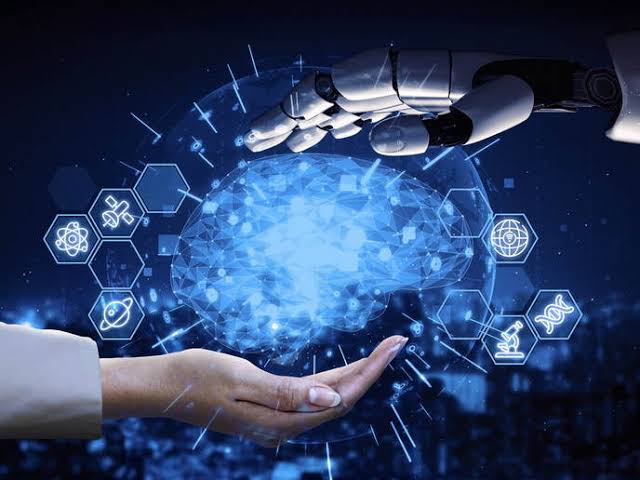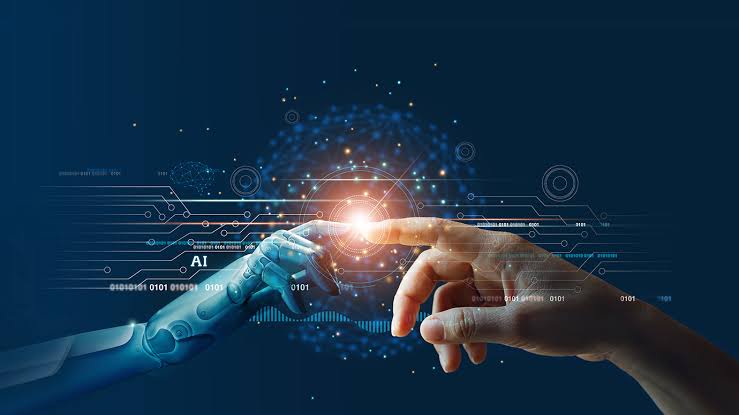30 May
Sandeep Dhand Ludhiana
Artificial Intelligence (AI) has rapidly evolved from a futuristic concept to a pervasive reality, transforming various aspects of human life. The intersection of human intelligence and artificial intelligence is now fostering a collaborative dynamic that holds the potential to revolutionize industries, enhance productivity, and address some of the world’s most pressing challenges. This article explores the multifaceted impact of human-AI collaboration and how it is shaping our present and future.

Enhancing Decision-Making
One of the most significant advantages of AI is its ability to process and analyze vast amounts of data far more quickly and accurately than humans. In sectors like healthcare, finance, and logistics, AI algorithms assist professionals by providing data-driven insights that enhance decision-making processes. For instance, in medicine, AI-driven diagnostic tools can analyze medical images with high precision, supporting doctors in identifying conditions like cancer at earlier stages. This collaborative approach not only improves the accuracy of diagnoses but also frees up human professionals to focus on patient care and complex problem-solving.
Boosting Productivity and Efficiency
AI technologies are also revolutionizing workplace productivity. Automated systems and AI-driven software can handle repetitive and mundane tasks, allowing human workers to concentrate on more strategic and creative endeavors. In manufacturing, for example, AI-powered robots perform assembly line tasks with consistency and speed, while human workers oversee operations and manage exceptions. This synergy between human creativity and machine efficiency leads to higher productivity and reduced operational costs.
Innovation and Creativity
Contrary to the fear that AI might stifle human creativity, the collaboration between humans and AI has sparked new avenues for innovation. In the arts, AI tools assist artists, musicians, and writers in pushing the boundaries of their creativity. AI algorithms can generate music, create visual art, and even write poetry, providing new perspectives and inspiration. Moreover, in fields like architecture and design, AI aids in exploring innovative solutions that might not have been conceivable through traditional methods.

Addressing Global Challenges
The partnership between humans and AI is pivotal in tackling global challenges such as climate change, healthcare accessibility, and poverty. AI systems analyze environmental data to predict climate patterns and natural disasters, enabling governments and organizations to implement proactive measures. In healthcare, AI-driven telemedicine platforms are expanding access to medical services in remote and underserved areas. Additionally, AI-driven data analysis helps in devising more effective strategies for economic development and poverty alleviation.
Ethical Considerations and Challenges
Despite its many benefits, human-AI collaboration also raises important ethical considerations. Issues such as data privacy, algorithmic bias, and the potential for job displacement need to be addressed to ensure that the integration of AI into society is equitable and just. It is crucial for policymakers, technologists, and society at large to engage in ongoing dialogue about these challenges and develop frameworks that promote responsible AI use.
Conclusion
The collaboration between humans and AI is not about one replacing the other but about combining the strengths of both to create a more innovative, efficient, and equitable world. As AI technologies continue to evolve, the potential for transformative impact across various domains will only grow. By embracing this partnership, society can leverage the power of AI to enhance human capabilities, drive progress, and address some of the most pressing issues facing the world today. The future of human-AI collaboration promises to be a journey of shared growth, where the synergy between human ingenuity and artificial intelligence leads to unprecedented advancements and opportunities.